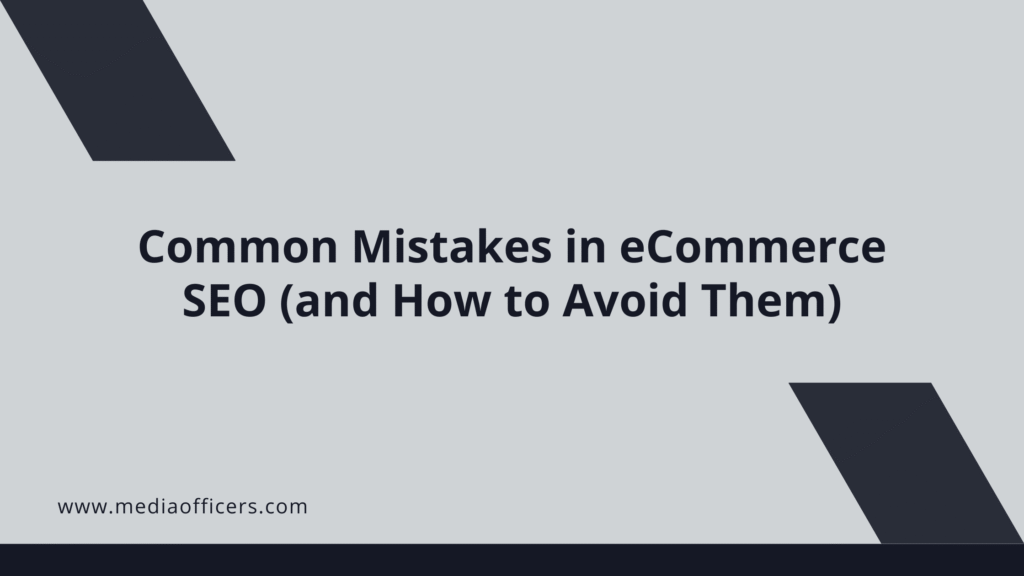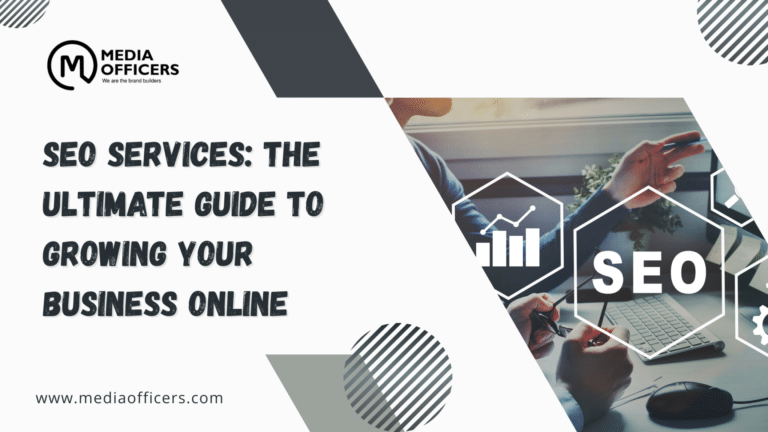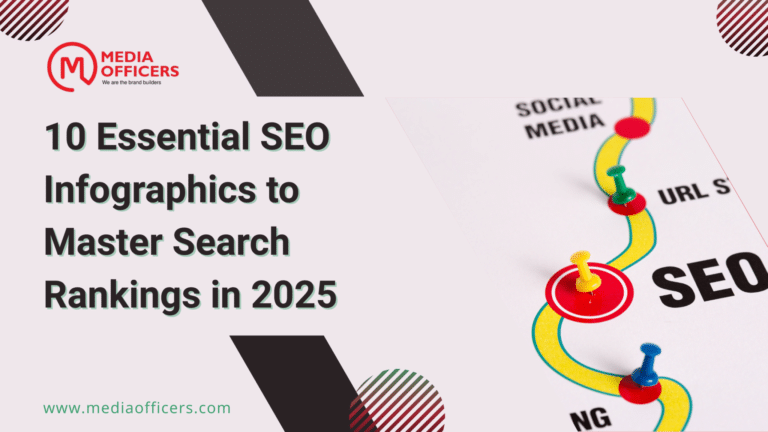Running an online store without SEO is like opening a brick-and-mortar shop in a hidden alley no matter how great your products are, customers simply can’t find you. With 93% of online experiences beginning with a search engine, eCommerce SEO services have become the backbone of successful online retail strategies.
The digital marketplace has never been more competitive. Amazon hosts over 12 million products, Shopify powers more than 1.75 million businesses worldwide, and new online stores launch every minute. Standing out requires more than just great products and competitive prices you need visibility.
eCommerce SEO services encompass a specialized set of strategies designed specifically for online stores. Unlike traditional website SEO, eCommerce optimization focuses on product pages, category structures, shopping feeds, and conversion-driven content that guides customers through their buying journey.
The stakes are higher than ever. Google’s algorithm updates, the rise of AI-powered search, and changing consumer behaviors mean that what worked in eCommerce SEO five years ago might actually hurt your rankings today. This comprehensive guide explores everything you need to know about eCommerce SEO services, from foundational strategies to cutting-edge techniques that will keep your online store ahead of the competition.
What Are eCommerce SEO Services?
eCommerce SEO services are specialized search engine optimization strategies tailored specifically for online retail websites. These services focus on improving your store’s visibility in search results, driving qualified traffic to product pages, and ultimately increasing sales and revenue.
The scope of eCommerce SEO extends far beyond basic keyword optimization. It encompasses technical website improvements, content strategy, user experience enhancements, and conversion optimization all working together to help search engines understand and rank your products effectively.
What sets eCommerce SEO apart from traditional website optimization? Standard SEO might focus on a handful of service pages or blog posts, but eCommerce sites often have thousands of product pages, multiple category levels, and complex filtering systems. Each product page represents a potential entry point for customers, making the optimization challenge both more complex and more rewarding.
The primary goals of eCommerce SEO services include increasing organic traffic, improving search rankings for product-related keywords, enhancing user experience, and driving conversions. Success isn’t just measured by traffic numbers it’s about attracting customers who are ready to buy.
Professional eCommerce SEO services also address unique challenges like seasonal inventory changes, product availability fluctuations, and the need to optimize for various search intents, from informational queries (“best running shoes for beginners”) to transactional searches (“buy Nike Air Max online”).
Why eCommerce Websites Need SEO in 2025
The digital retail landscape has fundamentally shifted. Paid advertising costs on platforms like Google Ads and Facebook have increased by over 30% in the past two years, making organic traffic more valuable than ever. eCommerce SEO provides a sustainable way to reduce customer acquisition costs while building long-term visibility.
Competition in online retail continues to intensify. Every industry now has established players and scrappy newcomers fighting for the same customers. eCommerce SEO Services helps level the playing field by allowing smaller brands to compete with retail giants through targeted, niche-specific optimization strategies.
Consumer behavior has evolved significantly. Modern shoppers conduct extensive research before making purchases, often comparing products, reading reviews, and seeking educational content. Businesses that provide valuable, eCommerce SEO Services-optimized content throughout the customer journey capture more qualified leads and build stronger brand authority.
The rise of AI-powered search and voice queries has created new optimization opportunities. Google’s Search Generative Experience (SGE) and voice assistants are changing how people find and purchase products online. eCommerce sites that adapt their SEO strategies to these emerging technologies gain a competitive advantage.
Mobile commerce continues to grow, with mobile devices accounting for over 60% of eCommerce traffic. Google’s mobile-first indexing means that mobile optimization isn’t optional it’s essential for maintaining search visibility. eCommerce SEO services ensure your store performs excellently across all devices and search scenarios.
Building trust and brand authority through SEO has become crucial for customer acquisition. High search rankings signal credibility to potential customers, while comprehensive, helpful content positions your brand as an industry expert rather than just another retailer.
Key Components of eCommerce SEO Services
Keyword Research for Product Pages
Effective eCommerce keyword research goes beyond identifying high-volume terms. It requires understanding buyer intent at different stages of the purchase journey. Customers searching for “wireless headphones” have different needs than those looking for “Sony WH-1000XM4 review” or “buy Sony WH-1000XM4 black.”
Long-tail keywords often drive the most valuable eCommerce traffic. Phrases like “waterproof hiking boots for women size 8” may have lower search volumes but typically indicate high purchase intent. These specific queries often face less competition and convert at higher rates than broad, generic terms.
Modern keyword research leverages AI-powered tools to identify emerging trends and semantic keyword relationships. Tools like Semrush, Ahrefs, and Google’s Keyword Planner help uncover keyword opportunities that competitors might miss, including seasonal trends and product-specific search patterns.
Successful eCommerce keyword strategies also consider product variations, features, and use cases. A single product might rank for dozens of related keywords by optimizing for different colors, sizes, applications, and customer needs.
On-Page Optimization
Product page optimization forms the foundation of eCommerce SEO success. Title tags should include primary keywords while remaining compelling and descriptive. Meta descriptions act as sales copy, encouraging clicks while incorporating relevant keywords naturally.
Product descriptions require careful balance between SEO optimization and persuasive copy. The best descriptions answer customer questions, highlight key benefits, and include relevant keywords without sacrificing readability or sales effectiveness.
Image SEO plays a crucial role in eCommerce optimization. Properly optimized images with descriptive file names and alt text help products appear in Google Image search results, creating additional traffic opportunities. High-quality, fast-loading images also improve user experience and conversion rates.
Internal linking strategies help distribute page authority throughout your eCommerce site while improving navigation. Linking related products, categories, and relevant blog content keeps visitors engaged and helps search engines understand your site’s structure and content relationships.
Technical SEO for eCommerce
Site speed directly impacts both search rankings and conversion rates. Research shows that a one-second delay in page load time can reduce conversions by 7%. Core Web Vitals metrics Largest Contentful Paint, First Input Delay, and Cumulative Layout Shift have become crucial ranking factors.
Mobile-first optimization ensures your eCommerce site delivers excellent experiences across all devices. This includes responsive design, touch-friendly navigation, fast mobile load times, and streamlined checkout processes that work seamlessly on smartphones and tablets.
URL structure and canonical tags prevent duplicate content issues that commonly plague eCommerce sites. Products available in multiple colors or sizes can create duplicate content problems if not properly managed. Clean, descriptive URLs and proper canonical tag implementation help search engines understand your content hierarchy.
eCommerce sites also require specialized technical considerations like XML sitemaps for products, proper handling of out-of-stock items, and structured data markup that helps search engines display rich snippets with product information, pricing, and reviews.
Content Marketing for eCommerce
Blog content targeting buyer questions and pain points attracts customers early in their research phase. Articles like “How to Choose the Right Running Shoes” or “Complete Guide to Smartphone Cameras” drive traffic from informational searches and establish brand authority.
Product guides and comparison content help customers make informed decisions while keeping them engaged with your brand. These resources often attract high-quality backlinks and social shares, supporting broader SEO efforts.
AI-generated personalized content recommendations are becoming increasingly sophisticated. Dynamic content that adapts to user behavior, search history, and preferences can improve engagement metrics and conversion rates while providing unique value to visitors.
Educational content that addresses common customer concerns builds trust and reduces purchase anxiety. FAQ pages, how-to guides, and troubleshooting resources not only support SEO but also improve customer satisfaction and reduce support costs.
Link Building & Authority Growth
Guest posting and PR outreach help eCommerce sites earn high-quality backlinks from relevant industry publications and blogs. Contributing valuable insights to trade publications and industry websites builds brand authority while generating referral traffic.
Influencer collaborations can generate both backlinks and social proof. Working with industry experts, bloggers, and social media influencers creates content that naturally attracts links while expanding brand reach to new audiences.
Creating unique resources like industry reports, surveys, or tools often attracts natural backlinks from other websites and publications. These linkable assets continue generating value long after their initial publication.
Advanced eCommerce SEO Strategies for 2025
Artificial intelligence is transforming eCommerce SEO in unprecedented ways. AI-driven product recommendations and personalized content help create unique user experiences that improve engagement metrics and search performance. Machine learning algorithms can analyze customer behavior patterns to optimize product placement and content strategy.
Google Discover and AI-powered search features present new optimization opportunities. Optimizing content for featured snippets, knowledge panels, and Google’s Search Generative Experience requires understanding how AI systems interpret and present information.
Local SEO for eCommerce businesses combines traditional location-based optimization with online retail strategies. Google Business Profile optimization, local landing pages, and location-specific product availability can capture customers searching for nearby shopping options.
Schema markup implementation has become essential for eCommerce success. Product schema, review markup, and FAQ structured data help search engines display rich snippets that improve click-through rates and provide better user experiences.
Advanced personalization strategies use customer data to create dynamic, SEO-optimized experiences. Personalized product recommendations, content suggestions, and search results can improve engagement while maintaining search engine visibility.
How to Choose the Right eCommerce SEO Service Provider
Selecting an eCommerce SEO agency requires evaluating both technical expertise and industry experience. Look for providers with proven track records in your specific industry and business model. B2B marketplaces have different optimization needs than direct-to-consumer fashion retailers.
Key qualities include transparent reporting, clear communication, and strategic thinking beyond basic keyword optimization. The best agencies understand eCommerce business models, conversion optimization, and how SEO fits into broader marketing strategies.
Important questions to ask potential providers include: How do you handle seasonal inventory changes? What experience do you have with our eCommerce platform? Can you provide case studies from similar businesses? How do you measure and report ROI?
Red flags include guaranteed rankings, extremely low pricing, focus only on traffic rather than conversions, and lack of transparency about methods and strategies. Avoid agencies that can’t explain their approach or provide references from current clients.
Measuring the ROI of eCommerce SEO Services
Success metrics for eCommerce SEO extend beyond traditional ranking reports. Key performance indicators include organic traffic growth, conversion rate improvements, revenue attribution to organic search, and customer lifetime value from organic visitors.
Click-through rates from search results indicate how well your title tags and meta descriptions attract clicks. Monitoring CTR changes helps optimize search appearance and identify opportunities for improvement.
Revenue tracking requires proper analytics setup with eCommerce conversion tracking. Google Analytics 4 and Google Search Console provide insights into which keywords and pages drive the most valuable traffic and conversions.
Realistic timeframes vary by competition level and starting point, but most eCommerce SEO campaigns show initial improvements within 3-6 months and significant results within 6-12 months. Established sites may see faster results than new stores starting from zero.

Common Mistakes in eCommerce SEO (and How to Avoid Them)
Duplicate content issues frequently plague eCommerce sites with similar products or multiple product variations. Proper canonical tag implementation and unique product descriptions prevent these problems from harming search performance.
Ignoring mobile optimization remains a critical mistake despite mobile-first indexing. Ensure your eCommerce site provides excellent mobile experiences, including fast loading times, easy navigation, and streamlined checkout processes.
Poor product descriptions that rely on manufacturer copy create missed opportunities for differentiation and optimization. Unique, benefit-focused descriptions that address customer needs perform better in search results and drive more conversions.
Neglecting technical SEO elements like site speed, crawlability, and proper URL structure can undermine other optimization efforts. Regular technical audits identify and resolve issues that might prevent search engines from properly indexing and ranking your products.
Cost of eCommerce SEO Services
eCommerce SEO pricing varies significantly based on store size, competition level, and service scope. Small online stores might invest $2,000-5,000 monthly, while enterprise retailers often spend $10,000-50,000+ monthly on comprehensive SEO programs.
Factors affecting pricing include number of products, technical complexity, content requirements, link building needs, and desired timeline for results. Custom eCommerce platforms typically require more technical expertise than standard solutions like Shopify or WooCommerce.
Cheap SEO services often create more problems than they solve. Low-cost providers may use outdated techniques, automated content, or link schemes that can result in search penalties. Quality eCommerce SEO requires experienced professionals and sustained investment.
Consider SEO an investment rather than an expense. Well-executed eCommerce SEO campaigns typically generate positive ROI within 6-12 months and continue providing value for years through sustained organic visibility and traffic growth.
Frequently Asked Questions
What are eCommerce SEO services?
eCommerce SEO services are specialized optimization strategies designed for online stores, focusing on improving product page rankings, driving qualified traffic, and increasing sales through organic search visibility.
How much do eCommerce SEO services cost?
eCommerce SEO costs typically range from $2,000-50,000+ monthly depending on store size, competition level, and service scope. Small businesses often start around $2,000-5,000 monthly, while enterprise sites invest significantly more.
How long does eCommerce SEO take to show results?
Most eCommerce SEO campaigns show initial improvements within 3-6 months and significant results within 6-12 months. Timeline depends on starting point, competition level, and implementation quality.
What’s the difference between eCommerce SEO and PPC?
eCommerce SEO focuses on earning organic search rankings through optimization, providing long-term traffic growth. PPC generates immediate traffic through paid advertisements but stops when ad spend ends. SEO builds sustainable visibility over time.
Ready to Transform Your eCommerce Success?
eCommerce SEO services have evolved from nice-to-have marketing tactics into essential business investments. The combination of rising advertising costs, increasing competition, and changing consumer behaviors makes organic search visibility crucial for sustainable online retail success.
The strategies outlined in this guide provide a roadmap for building comprehensive eCommerce SEO programs that drive traffic, conversions, and revenue growth. From technical optimization to content marketing and link building, each component plays a vital role in overall success.
Success requires consistent effort, strategic thinking, and adaptation to evolving search algorithms and consumer behaviors. The businesses that invest in quality eCommerce SEO services today position themselves for long-term growth and competitive advantage.
Don’t let your competitors capture the customers searching for your products. Contact our eCommerce SEO experts today for a comprehensive audit of your online store’s search performance and discover how strategic optimization can transform your business results.




